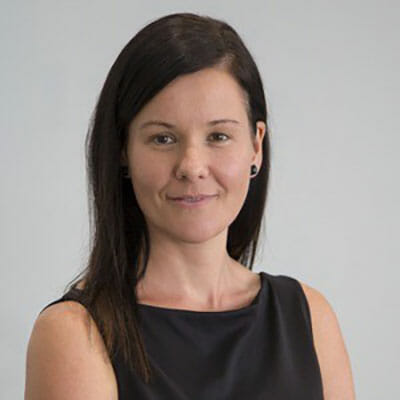
When it comes to the finances of your business, would you say that you have a complete handle on it? Many agency owners don’t. And there are a lot of reasons why. Firstly, you’re not an accountant and you don’t have time to become one right? Secondly, it’s scary, overwhelming, confusing… and can I say it? A little boring.
Nev Harris is one of our Mavericks who is the man when it comes to helping agency owners and freelancers manage their money. What’s great about his advice is that he keeps it simple, so you won’t be overwhelmed… trust me.
Nev Harris is a brand that helps people have conversations around the difficult subject of money. He helps people understand their money, get familiar with it and use it as a tool to help grow their business and make better decisions.
Nev says that people who aren’t money people, usually feel uncomfortable talking about it.
There seems to be a lot of fear around money. Nev tells us that even the most successful people that he has given financial advice to are scared to look at their finances. There’s fear of not making enough, fear that they’re not profitable even fear that it’s just too difficult to understand.
Nev grew up with a father who loved to talk about finances and so he was always interested in money and went on to study economics and finance. Once he got into the corporate world, he soon figured out that he didn’t want to be looking at spreadsheets all day, so he started his own mortgage company. And then seven years ago he decided to start his own agency.
When Nev joined the Mavericks Club, he realised that everyone was so switched on when it came to building their business in all areas except one – No one was talking about money management. So he started helping really successful people in the group with their finances. And six months ago he took the advice of the group and started helping others to have conversations around it.
If someone isn’t looking at the numbers in their business because they don’t understand it or have fear around it, the first thing (and the easiest thing) to do is to do an audit of your expenses. Subscriptions are a killer so take inventory all your subscriptions. Ask yourself – Do I need this? Do I have anything else that can replace it?
Nev does this for his business once a year.
So what should an agency owner expect their gross and net margins to be as they’re growing?
Nev says that the simplest way to understand margins is to forget the words “gross” and “net” and use the rule of thirds:
There can be a point in your business where you’ll be able to allocate yourself a salary and still have profit left over. Nev says that there are no hard and fast rules for this, but as a rough guide if you’re bringing in $8-10K in profit, you could start to think about taking a salary as the owner.
But it’s a bit more complex than that – if you have an accountant there are different corporate structures that you can set up. Some are more tax-advantaged than others and the accountant will be able to advise you on which path to take for your business.
Many business owners think that they can’t afford an accountant or bookkeeper when they’re starting out and try to do it themselves. But Nev says that even he checks in with his accountant regularly because there is so much to consider when you’re making decisions around money.
The bottom line is that an accountant is going to make you money.
If you’re paying an accountant $500-$1000 per year, then their tax advice should be making you three times that amount.
Nev also believes that a bookkeeper should be one of your first hires because:
You can then use the statements that they give you as a guide to grow your business.
Nev helps people to have better conversations with their accountants so that they understand finance at a base level and they then know what to ask their accountants.
Some of the fundamental questions to ask an accountant throughout the year are:
You also need to let your accountant know your goals. This is very important because, for example, if you are going to buy a house sometime in the future but you’ve reduced your personal tax liability, your income won’t look as favourable to the banks.
If you write-off your income as much as possible, you show a lower income which means you will pay a higher interest rate on the home. So you have to evaluate saving money now on your tax vs paying a higher interest rate later.
You also need to consider whether you would be selling your company in the future because in this case, you would be wanting to put all the money that you can on the books to show as much value as possible.
Nev has done a lot of research into pricing and he says that the worst ways to price are by charging an hourly rate or project-based pricing. You can’t show your value with this pricing and you end up in a race to the bottom.
The best way to price is value-based pricing.
You need to educate the client on what value they will be getting from your service or product. For example, if you’re designing a website that will make them $30k in revenue then it makes sense that you can charge them $10k for that website.
Get them to be thinking about the value you’ll be bringing them. And if the client can’t see the value, Nev’s advice is to ask:
If you don’t believe your website can make any money, why do you want one?
The client will then tell you why they need the website and then you ask them what the value of those needs are.
Your job is to uncover the value for them.
Creating a predictable product is important if you want to grow your business. You need a product that has specific inclusions and exclusions so you know exactly how much time and money will be spent on the project. This also avoids scope creep because a client will always want more than you give them when they don’t understand the boundaries.
You see? It’s not so overwhelming, is it?
All you need is to:
There’s some extra little tricks and tips throughout this podcast, so make sure you tune in.
If you’d like more help with money management, then join Nev’s Facebook group which was inspired by Mavericks Club – Think Tank for Agency Owners and Freelancers.

We make the best effort to accurately represent the services and/or products presented on this website. Statements or examples of actual earnings on this website that are attributed to a specified individual or business are true and correct to the best of our knowledge. However, these statements or examples should not be regarded as promises or guarantees of earnings or income. Earnings and income potential are affected by a number of factors over which we have no control, including but not limited to your financial condition, experiences, skills, level of effort, education, and changes within the market. Operating an online business entails risks, you should perform your own due diligence regarding your evaluation of any services and/or products presented on this website. For the foregoing reasons, you agree that we are not responsible for any decision you may make regarding any information presented on this website or any of the services and/or products presented on this website.